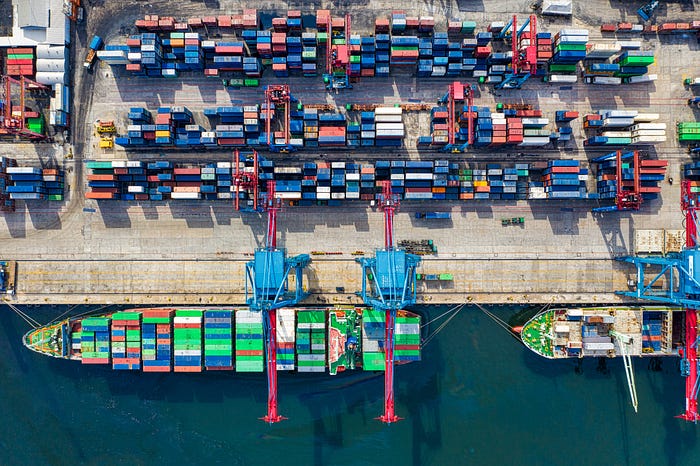Blockchain technology is a game-changing innovation that has the ability to change the way we conduct transactions and manage supply chains. The technology has gained popularity in recent years as a result of its relationship with cryptocurrencies, but its applications are far-reaching.

At its core, blockchain technology is a distributed ledger system that enables safe and transparent transactions without the need for a centralized authority. In a blockchain network, transactions are verified and recorded by a decentralized network of computers rather than by a single centralized authority. This strengthens the system’s resistance to fraud, corruption, and hacking.
Cryptocurrency is one of the best-known implementations of blockchain technology. The first and best-known cryptocurrency, Bitcoin, uses blockchain technology to allow peer-to-peer transactions without the use of a financial institution. This has the potential to lower transaction costs and increase financial inclusion for those who might not otherwise have access to traditional banking services.

But blockchain technology is not restricted to bitcoin. In fact, the technology is being used in a wide range of industries, from logistics to healthcare. One area where blockchain holds great promise is supply chain management.
Supply chains are intricate networks of suppliers, manufacturers, distributors, and retailers that are in charge of delivering goods and services to customers. When it comes to following the movement of goods and confirming their legitimacy, supply chain monitoring can be challenging. Here is where blockchain technology comes into play.

Supply chain players can follow the passage of commodities from the point of origin to the point of consumption using a blockchain-based system and verify their legitimacy along the way. This can assist in keeping counterfeit items out of the market and guaranteeing that products are obtained ethically and sustainably.
Walmart, for example, has put in place a blockchain-based system to trace the transportation of produce from farms to stores. With the technology, the corporation can rapidly identify the source of any food safety issues and remove affected items from the market, decreasing customer risk.
In addition to supply chain management, blockchain technology is being used in a wide range of other applications, such as voting systems and digital identity management. The technology has practically limitless potential applications, and its effects on society and the economy could be profound.

However, there are worries about the environmental effects of blockchain technology, particularly in the case of cryptocurrencies. On a blockchain network, transaction verification requires a significant amount of processing power, which consumes a significant amount of energy. As the technology spreads, it will be critical to develop ways to reduce its environmental impact.
As blockchain technology develops and matures, it becomes more and more clear that it has the potential to revolutionize various systems and industries outside of transactions and supply chain management. The decentralized nature of blockchain networks, with its applications ranging from decentralized energy trading and decentralized finance to digital identity management and voting systems, has the potential to create a society that is more open, transparent, and equal. Solving problems like scalability, interoperability, and regulatory frameworks will be crucial as technology grows and becomes more and more ingrained in our daily lives. The potential benefits of blockchain technology, on the other hand, are too large to ignore, and it will almost certainly continue to be a major driver for innovation and disruption in the years ahead.


All Comments